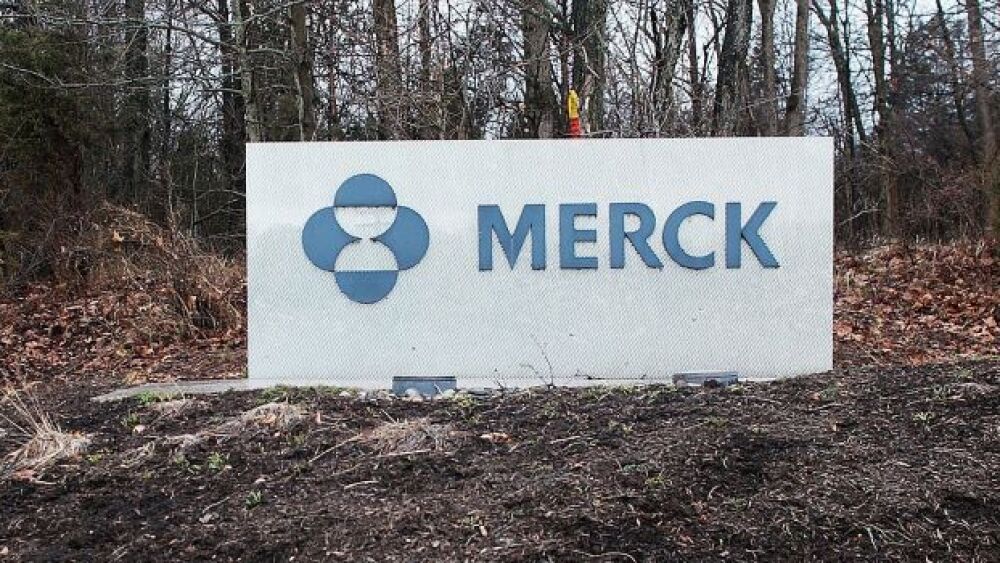Merck will acquire Acceleron for the expected $180 per share in cash for an approximate total equity value of $11.5 billion.
Chris Hondros/Getty Images
When insider reports broke on September 24 that Acceleron Pharma was in advanced talks to be acquired, partner and minority shareowner Bristol Myers Squibb was presumed to be the favorite suitor. But by Wednesday evening, BioSpace reported that Merck & Co. had emerged the winner of Acceleron and its promising Pulmonary Arterial Hypertension (PAH) drug. This morning, the two companies confirmed the news.
Specifically, Merck will acquire Acceleron for the expected $180 per share in cash for an approximate total equity value of $11.5 billion. The (PAH) drug, sotatercept, a potentially first-in-class blockbuster with the potential to improve short- and long-term clinical outcomes for patients with PAH, is believed to be the center point of the deal. Sotatercept, which is currently in Phase III development, will augment Merck’s existing PAH pipeline, including Adempas, which it gained in a licensing agreement with Bayer. Earlier this year, Merck initiated a Phase II/II study of MK-5475, an inhaled soluble guanylate cyclase (sGC) stimulator.
In the deal, Merck also picks up reblozyl, a first-in-class erythroid maturation recombinant fusion protein for anemia in certain rare blood disorders. Reblozyl, which is being co-developed and commercialized with BMS, was first approved by the U.S. Food and Drug Administration (FDA) in 2019 to treat patients with beta-thalassemia who require regular red blood cell (RBC) transfusions.
“Strategic business development is a top priority for Merck as we look to drive sustainable growth and further bolster and balance our pipeline with breakthrough science,” said Merck CEO and President Rob Davis in a statement. “Acceleron’s innovative research has yielded an exciting late-stage candidate that complements and strengthens our growing cardiovascular portfolio and pipeline and holds the potential to build upon Merck’s proud legacy in cardiovascular disease.”
Balancing the pipeline would appear to be a top priority for Merck, as its once-in-a-lifetime cancer drug, Keytruda, will lose exclusivity in 2028. SVB Leerink Senior Research Analyst Daina Graybosch, Ph.D., told BioSpace that projected revenues from sotatercept and Reblozyl combined would reduce the proportion of revenue from Keytruda from 50% to 48%.
While this might seem incremental, Graybosch said, “I think it just shows you how big of a drug Keytruda is and will be even bigger. Of course, you want to keep the Keytruda revenue high, but I think the big focus for investors is to bring down the overall dependence given the risks to it, competitive, loss of exclusivity.”
Graybosch pointed out that Keytruda is “sort of like an irreplaceable drug in terms of its breadth. They say it’s a franchise in a drug and it really is.”
Still, Merck has been busy the past 12 months, trying to shore up and diversify its assets. The company previously went on a buying spree that spread from late 2020 into 2021, acquiring OncoImmune in November and picking up autoimmune disease drug developer Pandion Therapeutics in February in a 1.85 billion deal. Other acquisitions included VelosBio and Themis.
Acceleron CEO and President Habib Dable offered his take and rationale on the acquisition.
“This agreement with Merck represents the culmination of decades of work by Acceleron researchers successfully leveraging our company’s deep scientific expertise in the biology of the TGF-beta superfamily and driven by an unwavering dedication to delivering life-changing medicines for patients,” he stated. “We believe Merck is well-positioned to apply its industry-leading clinical and commercial capabilities to harness the potential of sotatercept as we join together to help make an impact on cardiopulmonary disease for the benefit of patients.”
According to the joint statement, the transaction is expected to close in the fourth quarter of 2021.






